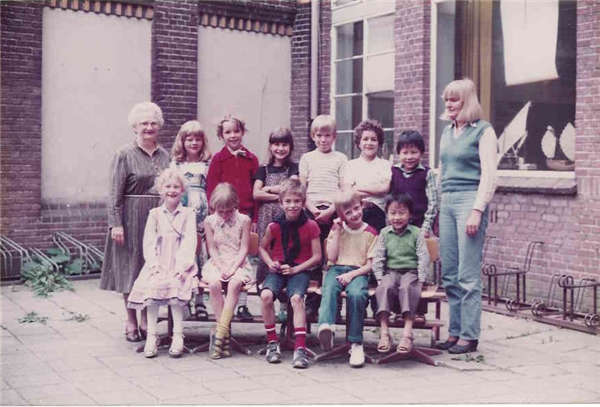Chinese, yet more
 |
|
Chan's class picture during his first year in primary school. |
He married a fellow native of Enping, Guangdong province, but he has also dated Mexican women. He feels equally at home around his Mexican friends as he does his Chinese friends.
But what does he say when people ask him where he is from?
"I say: 'I'm 100 percent Chinese, but I was raised in Mexico,'" Zheng says by phone from Tijuana, Mexico, where he works as a chef at his family's Chinese restaurant.
"I have to recognize where I came from and I have to acknowledge where I grew up."
Although Chinese immigrants adapt to the culture of their host countries, they also uphold (to varying degrees) deeply rooted Chinese values and practices.
These include respecting the family hierarchy between parents and their children, recognizing the importance of guanxi (personal connections) in day-to-day dealings, as well as parents and children living up to their sense of responsibility to care for each other, says Bin Wu, a senior research fellow at the University of Nottingham and coordinator of its Center for Chinese Migration Studies.
How much immigrants maintain Chinese practices or adopt new ones is influenced by various factors, such as a person's beliefs, language preference, media consumption habits, social network and daily lifestyle choices like food, says Qing Zhou, an associate professor of psychology at the University of California, Berkeley.
















